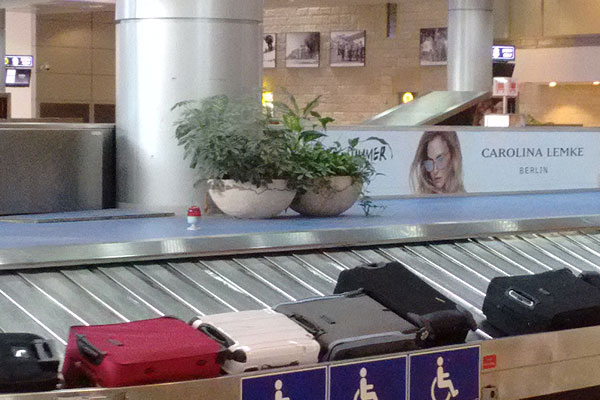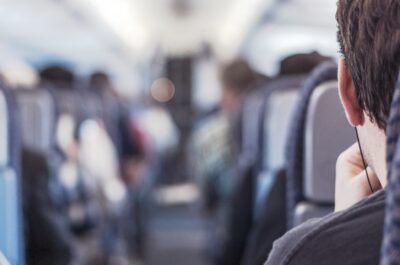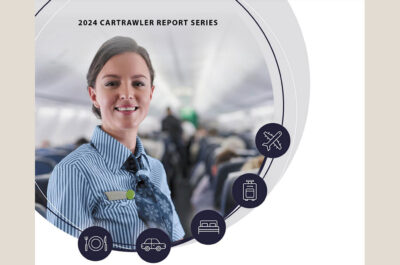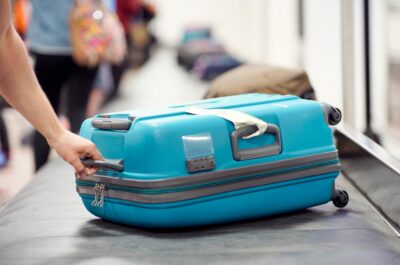CarTrawler global estimate of baggage fee revenue reveals 23.3% increase from 2020 estimate of $16.9 billion.
DUBLIN, IRELAND & SHOREWOOD, WISCONSIN – IdeaWorksCompany and CarTrawler recently estimated ancillary revenue at $65.8 billion worldwide for 2021. This CarTrawler Global Estimate of Baggage Fee Revenue identifies baggage as a $20.9 billion component and provides a summary of baggage fee policies for 20 top airlines.
Each year IdeaWorksCompany, through the sponsorship of CarTrawler, analyzes the ancillary revenue disclosures for airlines all over the world. These results are applied to a larger list of carriers (which numbered 109 for 2021) to estimate ancillary revenue activity for the world’s airlines. Baggage activity for each category of airline is added to this analysis to calculate a global estimate. It’s a significant component of ancillary revenue and consists of three primary sources: checked baggage in the aircraft hold, added fees for heavy and extra-large bags, and for some airlines, the price charged for larger carry-on bags. Stringent baggage fee policies are hallmarks of top revenue-performing low cost carriers. The surprising development within the last five years is the implementation of bag fees by some of the world’s leading global network airlines.
Stringent baggage fee policies are hallmarks of top revenue-performing low cost carriers. The surprising development within the last five years is the implementation of bag fees by some of the world’s leading global network airlines.
Gemma Harrison, Director of Marketing & Commercial Strategy at CarTrawler, said, “Ancillary revenue is very important to our airline partners, with baggage fee revenue a growing portion, worth $20.9 billion in 2021 alone. As ancillary revenue overall was worth $65.8 billion worldwide in 2021, this is clearly a significant figure and one that airlines will wish to continue to capture. Airlines that respond to changing consumer needs and provide appropriate options to their customers will find this revenue stream will continue to be a key growth driver for the industry.”
The table on the next page lists the baggage fee policies for 20 top non-low cost carriers, which just a few years ago would’ve displayed far less baggage fee activity. Today, fewer than half the airlines listed rely upon the traditional method of including checked baggage as a feature for all fares.

The majority have implemented bag fees on a portion or the entirety of their route network. When these airlines are organized by global region, it’s easier to see the policy groupings that currently exist. The abundant reliance upon bag fees in Europe and the Americas occurs largely due to the presence of a very significant low-cost carrier industry. Elsewhere in the world, traditional airlines include baggage benefits for all fares and have not yet adopted basic economy fares, which do not include checked bags.
When this global estimate was last published in 2019, British Airways was unique among the 20 carriers for its decision to offer basic economy fares throughout most of its global route network. Since then, these carriers have expanded application of bag fees to their entire networks: Air France/KLM, Avianca, LATAM Airlines, and Scandinavian. The offer of basic economy fares has grown during the pandemic. There are minor exceptions for some routes, where baggage fees are not charged on the lowest fares. These are often due to local government regulations which require the inclusion of a checked bag in all fares.
Southwest Airlines does stand alone in the US market with its advertising mantra of “bags fly free” which promises the benefit of two checked bags for every traveler. The carrier’s management claims this distinction contributes to Southwest’s admirable financial success.
However, the rest of the airline industry is unlikely to follow this example of product bundling. Bit by bit, traditional airlines in Africa, Asia, and Latin America are expected to test the basic economy method as they work to overcome the challenges of competition for leisure travelers and the ever-present threat posed by their low cost airline brethren.
Baggage fees have become more important to airlines during the course of the pandemic. This is evidenced by bag fees’ share of global airline revenue growing from 3.7% in 2019 to 4.6% for 2021. This trend applies for the wide range of optional extras that define ancillary revenue. Look for airlines to increase revenue from these activities by expanding flexible pricing and bundled fares and better retailing through online travel agents and mobile devices. Ancillary revenue, and baggage fee strategies, represent “must have” tools for today’s airline management.
Tatiana is the news coordinator for TravelDailyNews Media Network (traveldailynews.gr, traveldailynews.com and traveldailynews.asia). Her role includes monitoring the hundreds of news sources of TravelDailyNews Media Network and skimming the most important according to our strategy.
She holds a Bachelor's degree in Communication & Mass Media from Panteion University of Political & Social Studies of Athens and she has been editor and editor-in-chief in various economic magazines and newspapers.
































































































































































































